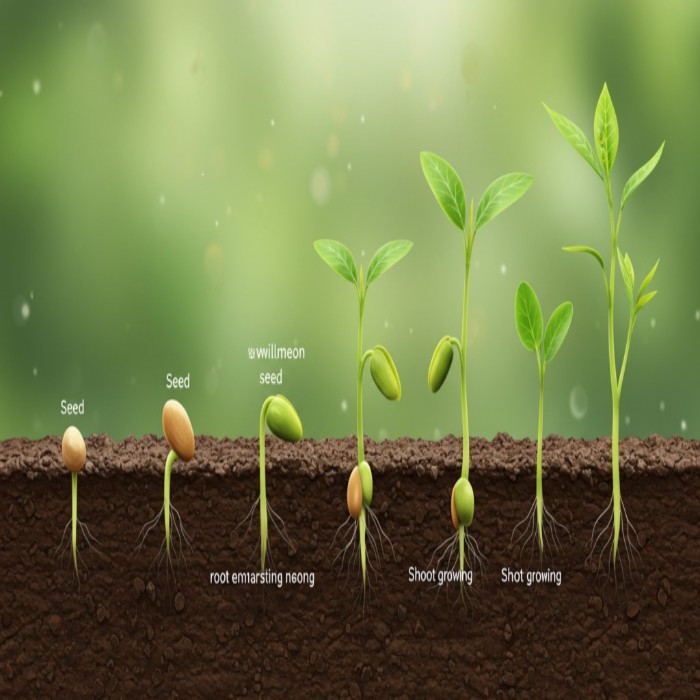how long does it take for seeds to germinate and transform your garden
Growing plants from seeds feels exciting for every gardener. Discover how long does it take for seeds to germinate, as germination times can vary from a few days to months based on seed type and conditions. Many people often ask how long does it take for seeds to germinate and transform your garden. The answer depends on several factors. By understanding these factors, you can improve germination success. Let us explore each aspect in detail.
Understanding the Germination Process
Germination starts when a seed absorbs water. This process activates growth inside the seed. Soon, the outer coat softens and splits. A tiny root then emerges to anchor the plant. After that, a small shoot pushes upward toward the light. This stage ends when the first leaves open. Knowing this sequence helps you monitor progress. Therefore, you can respond quickly if any issue appears.
Factors That Affect Germination Time
Temperature strongly influences germination speed. Warm conditions often accelerate growth. Cold conditions can delay or stop it completely. Moisture also plays an important role. Seeds require steady moisture to swell and activate. Light conditions may also affect certain species. Some seeds need light exposure to sprout. Others prefer complete darkness for best results. Furthermore, seed age influences success. Fresh seeds usually sprout faster than older ones.
Typical Germination Times for Common Seeds
Different seeds germinate at different speeds. Lettuce seeds often sprout within two to three days. Radish seeds show results within three to four days. Beans usually sprout within five to seven days. Carrot seeds may require up to fourteen days. Tomato seeds usually take about six to ten days. These time frames apply under ideal conditions. However, variations can occur due to environmental changes.
How to Speed Up Germination
Several techniques help you shorten germination time. Soaking seeds in warm water for a few hours often helps. This softens the seed coat and speeds absorption. Scarification, which means gently scratching the seed surface, can also help. Providing consistent warmth with a heating mat encourages faster growth. Using fresh, quality seeds ensures stronger sprouts. Keeping soil evenly moist supports steady development. Avoid waterlogging since it can cause rot.
Caring for Seedlings After Germination
Once seeds sprout, they need careful attention. Provide adequate light to encourage healthy leaf growth. Rotate containers daily to prevent leaning. Keep the soil moist but not soggy. Feed seedlings with diluted fertilizer after the first leaves appear. Protect them from sudden temperature changes. Thin crowded seedlings to allow better air circulation. Early care ensures strong, healthy plants for your garden.
Transforming Your Garden with Germinated Seeds
Healthy seedlings soon grow into mature plants. These plants transform your garden into a vibrant, productive space. A well-planned garden improves outdoor beauty and boosts food supply. Growing from seed also saves money. You gain access to more plant varieties compared to buying plants. Furthermore, nurturing plants from the beginning creates a deeper connection with nature. With patience and care, your garden flourishes season after season.
Growing plants from seeds feels exciting for every gardener. Many people often ask how long does it take for seeds to germinate and transform your garden. The answer depends on several factors. By understanding these factors, you can improve germination success. Let us explore each aspect in detail.
Understanding the Germination Process
Germination starts when a seed absorbs water. This process activates growth inside the seed. Soon, the outer coat softens and splits. A tiny root then emerges to anchor the plant. After that, a small shoot pushes upward toward the light. This stage ends when the first leaves open. Knowing this sequence helps you monitor progress. Therefore, you can respond quickly if any issue appears.
Factors That Affect Germination Time
Temperature strongly influences germination speed. Warm conditions often accelerate growth. Cold conditions can delay or stop it completely. Moisture also plays an important role. Seeds require steady moisture to swell and activate. Light conditions may also affect certain species. Some seeds need light exposure to sprout. Others prefer complete darkness for best results. Furthermore, seed age influences success. Fresh seeds usually sprout faster than older ones.
Typical Germination Times for Common Seeds
Different seeds germinate at different speeds. Lettuce seeds often sprout within two to three days. Radish seeds show results within three to four days. Beans usually sprout within five to seven days. Carrot seeds may require up to fourteen days. Tomato seeds usually take about six to ten days. These time frames apply under ideal conditions. However, variations can occur due to environmental changes.
How to Speed Up Germination
Several techniques help you shorten germination time. Soaking seeds in warm water for a few hours often helps. This softens the seed coat and speeds absorption. Scarification, which means gently scratching the seed surface, can also help. Providing consistent warmth with a heating mat encourages faster growth. Using fresh, quality seeds ensures stronger sprouts. Keeping soil evenly moist supports steady development. Avoid waterlogging since it can cause rot.
Caring for Seedlings After Germination
Once seeds sprout, they need careful attention. Provide adequate light to encourage healthy leaf growth. Rotate containers daily to prevent leaning. Keep the soil moist but not soggy. Feed seedlings with diluted fertilizer after the first leaves appear. Protect them from sudden temperature changes. Thin crowded seedlings to allow better air circulation. Early care ensures strong, healthy plants for your garden.
Transforming Your Garden with Germinated Seeds
Healthy seedlings soon grow into mature plants. These plants transform your garden into a vibrant, productive space. A well-planned garden improves outdoor beauty and boosts food supply. Growing from seed also saves money. You gain access to more plant varieties compared to buying plants. Furthermore, nurturing plants from the beginning creates a deeper connection with nature. With patience and care, your garden flourishes season after season.

